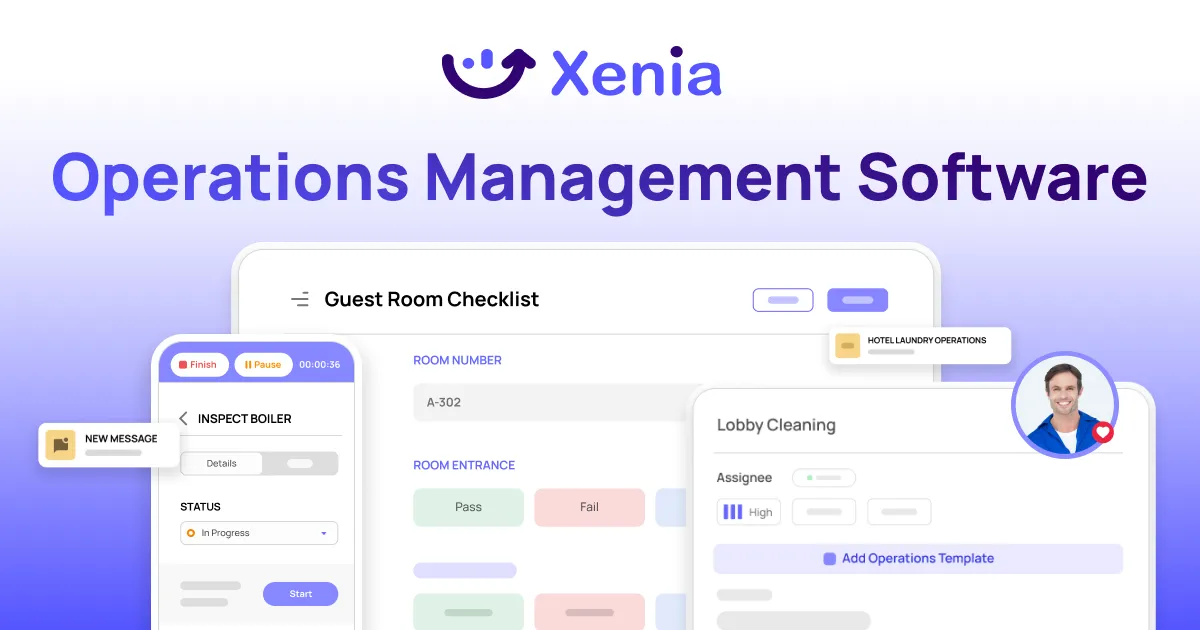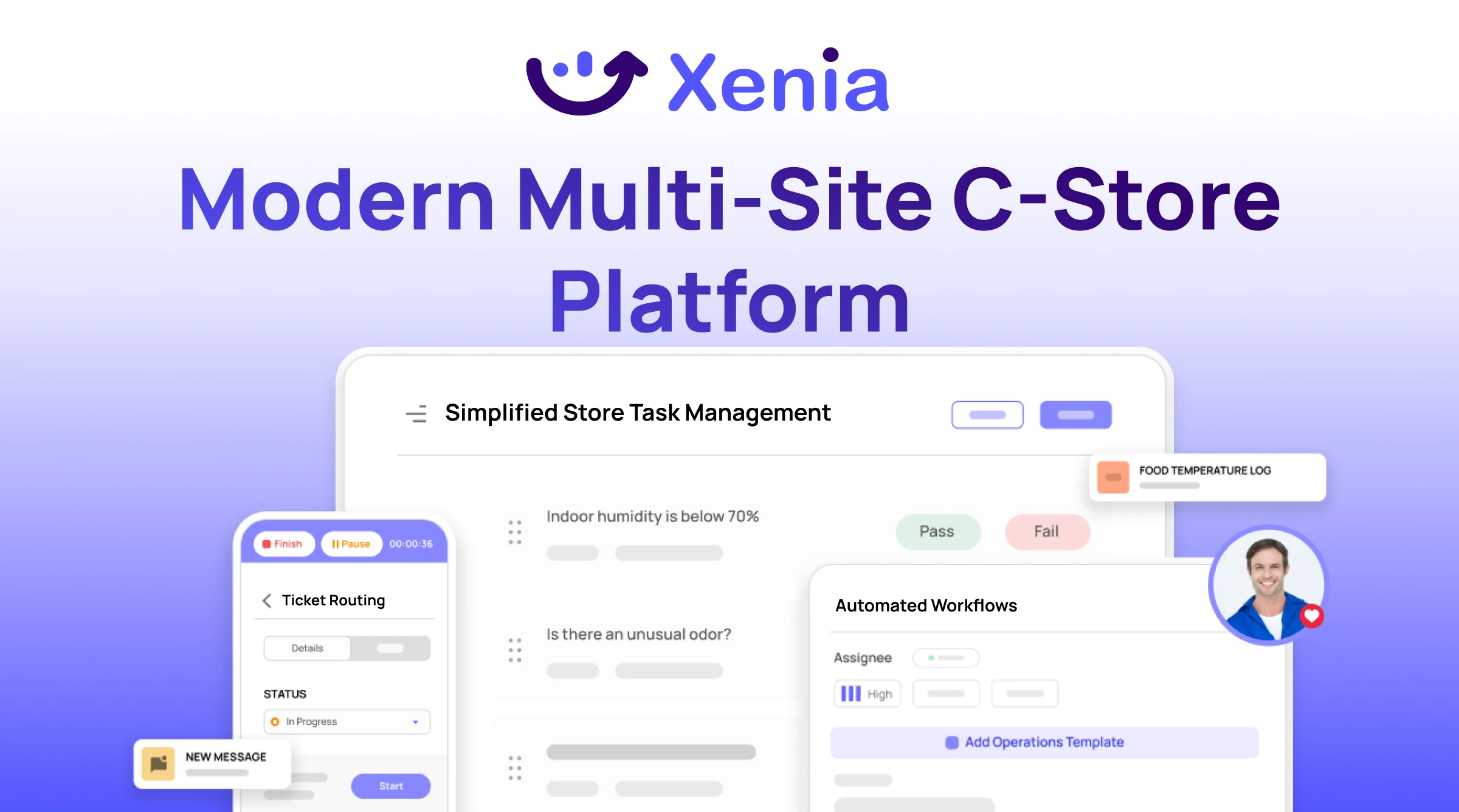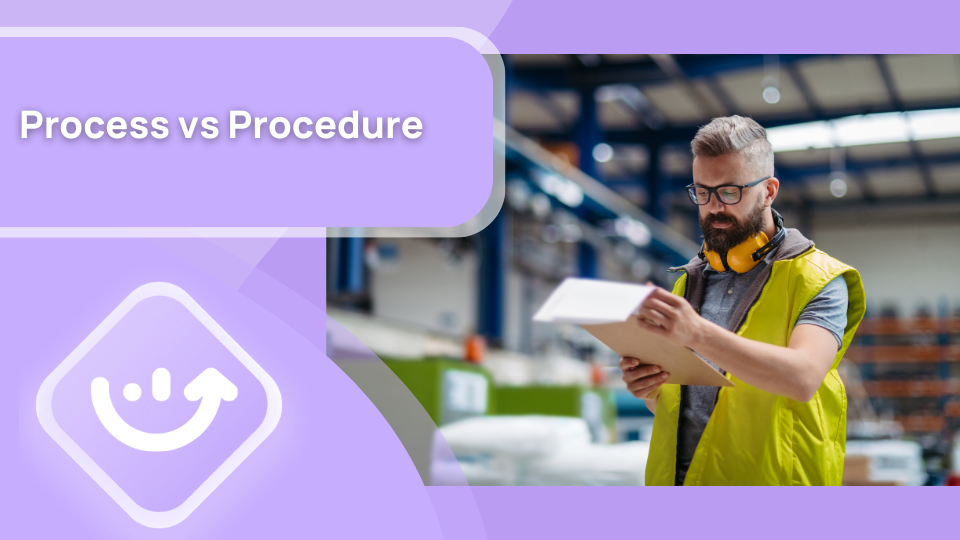Employees are 45% more likely to stay with a company that provides ongoing training, making store operations training software an essential tool for retail and multi-location businesses. They are based on the principles of the traditional LMS systems but extend their functionality by providing the overall solution, incorporating the task management, checklists, audits, and training content into a single system.
The fact that modern training platforms contribute to the standardization and repeatability of the procedures also ensures that the level of services, safety, and operations is similar throughout the locations.
Under-trained workforces have the potential to cost companies as much as 13.5 million dollars every 1,000 workers annually. Such loss is substituted by the automation of the training processes and compliance checks that enhance the overall compliance and efficiency.
This creates uniformity in customer experience and builds more trust in the chains, since every store has the capability of delivering the same level of high performance, creating a concentrated brand image and predictable quality of service.

Why Your Business Needs Store Operations Training Software
In other words, consistency and improved training make a better experience and bottom line. Training programs that are properly applied can produce a 30-50% increase in worker retention, and 94% of employees report that they would remain with a firm longer had the firm invested in their development. There is a lack of proper training today, which is the leading cause of 40% of resignations, which drains institutional knowledge and spirits.
Consistent operations also guard the customer experience: shoppers become dissatisfied when stores violate planograms or cleanliness standards. Conversely, uneven execution leads to errors, stockouts, or safety risks.
Essential Features to Look For When Evaluating Options
Assessing possibilities of task management and training systems, one must keep in mind the primary functions that will facilitate the workflow in your organization, make it more compliant, and more effective. The following are the main features that can be considered to choosing a solution.
- Task Management & Digital Checklists: Identify repetitive scheduling of tasks and personalizable paperless checklists to substitute legacy paper forms. Digital workflows (example of daily store audit, or checklist open/close store) minimize the error introduced by the human element, and nothing would be overlooked across stores.
- Mobile Accessibility: Training must be availed on the fly with the frontline personnel. Select mobile-first platforms on which staff members can accomplish tasks, watch training, and collect data by using a smartphone or a tablet.
- Compliance Tracking & Reporting: Included is built-in certification tracking, test completion, and audit readiness. Plans ought to present reporting dashboards as well as automated re-training reminders. With real-time reporting, real-time control of compliance KPIs is possible.
- Integration Capabilities: Your current systems (POS, HR/payroll, inventory) should all be connected to the software so that training and task data are integrated into the larger operations. The possibility of flows of information into the training platform is without re-entry through APIs or pre-built connectors.
- Analytics & Performance Monitoring: Some systems include AI suggestions or alerts when training scores fall below targets. Dashboards that correlate training completion with operational metrics drive continuous improvement.
- Customization & Scalability: The platform needs to be configurable as it must fit your processes. Custom SOPs, quizzes, and workflows should be able to be constructed by you. Check the scalability of the solution: from a few stores to hundreds.
- Security & Support: Enterprise-grade data security is vital. Also consider the vendor’s support and training resources.
Top 9 Store Operations Training Software Solutions

.svg)


1. Xenia – Best for Operational Excellence and Compliance
Best for: Store operations training by providing mobile-first, bite-sized learning, and real-time task guidance

Xenia stands out as the #1 choice for convenience stores and multi-location retail chains because it is far more than an LMS. Xenia is not an ordinary Learning Management System (LMS); it is a breakthrough for multi-location organizations that require streamlined operations, enhanced compliance, and better performance of their employees.
The traditional LMS platforms can be thought of as living in a vacuum, and Xenia will operate as a multi-scope platform that furthers operational implementation alongside training in a singular, mobile-first platform that allows companies to operate in a manner that is consistent and efficient across their locations.
Xenia is also a strong business tool to be used in companies that have numerous teams working in different locations and, instead of multiple systems, the businesses have an opportunity to involve one tool and ensure its perfect functioning without control, the training system, and the system of keeping the employees on track.
At its heart, Xenia is designed to embed learning into daily workflows. With this method, frontline employees are likely to learn and improve simultaneously as they undertake their day-to-day activities. The old-fashioned LMS systems usually force employees to leave their processes to access learning materials.
In comparison, Xenia can deliver training, SOPs, and checklists on compliance straight to the staff, regardless of their location in their line of work, and that allows the staff to learn and improve continuously without leaving the stream of their work operations.
This is an essential factor that will help busy frontline teams, as they do not have time to halt their work to attend training and study large documents about their SOP.
Xenias Standout Features
- AI-Powered SOP Authoring
Xenia uses Artificial Intelligence (AI) to transform long Standard Operating Procedure (SOP) documents or PDFs into interactive, microlearning bites. With the mere upload of an SOP, Xenia can automatically create a step-by-step checklist in a detailed format that even has embedded quizzes to check knowledge.
The automation will not only result in the SOPs being up to date at all times but also facilitate their dissemination among the frontline personnel. When AI is used, the process of updating and distributing SOPs manually is removed, and the process becomes a lot more streamlined.

- Microlearning Delivery
Xenia training is based on the idea of microlearning training, presenting training in short, concentrated chunks that are easy to retain by employees. The mobile app enables the staff to watch 60-second video training bits and take quizzes whenever they have spare moments, as they can participate in learning material between their shifts and without taking a break and leaving their jobs.
To take an example, when an employee is doing a checklist task to clean the coffee machine, a microlearning video can be attached to the task that explains how to clean the machine in less than a minute. This is a retention boosting technique that enables employees to learn during the job in a manner that is complementary to their work process.

- Multi-Language Support & QR Access
Ensuring training and SOPs are available to all employees, despite language proficiency, is one of the challenges facing multi-location businesses, particularly in diverse business environments. Xenia resolves this by supporting multiple languages and auto-translation of all training materials.
Furthermore, the QR codes may be linked to all training materials and SOPs. These QR codes could exist on the equipment or other specific locations in the store, and when scanned by the staff, they could see the related training or procedure instantly in front of their eyes.
This is the just-in-time learning model or an inquiry-based learning model where the workforce addresses the problem as it comes without interfering with their jobs. You require a SOP on how to clean a fryer or a quick session on how to do promotions in new stores? All that is needed is a scan to get the needed information.

- Task Management & Checklists
Xenia, instead of using paper-based audits, checklists, and task management systems it uses customizable digital approaches. The daily ethics audit of stores, food safety precautions, opening/closing procedures, and inventory management activities are all examples of things that can be digitized in a very efficient manner, and reliance on paper logs can be diminished, and human error will be reduced.
This digital task management method will not only enhance operational efficiency but will also make it accountable. Real-time tracking and automatic reminders allow managers to discover almost immediately where compliance is not at a desired level or tasks are not accomplished.
Xenia checklists can be customized, which leads to the fact that tasks can be differentiated in accordance with the individual needs of this or that store or department; thus, every employee understands what is expected of him or her at any given moment.

- Corrective Actions
Xenia goes beyond task management by automating corrective action workflows. If an employee fails to complete a task or an audit item doesn’t meet compliance standards, Xenia will automatically trigger a corrective action process. This feature ensures that the issue is not just identified, but actively resolved.
Managers are alerted to incomplete tasks, and they can assign responsibility to the appropriate staff members to follow through on corrective actions. Also, Xenia monitors how such problems are resolved to keep track of the accountability in each of the locations so that no problem remains unchecked.

- Temperature Monitoring
Xenia integrates with Bluetooth temperature sensors and logs data in real time. Managers receive alerts when equipment goes out of range, and compliance logs are always audit-ready.
Managers are immediately notified through their phones when the temperature falls outside the preferred range so that they can quickly act before products are spoiled or before any regulatory problems emerge. This preventative practice ensures Food Safety and minimizes the chance of having losses, which may be very expensive.

Xenia: The Key to Multi-Location Success
For convenience stores and multi-location operators that value consistent execution, compliance, and team accountability, Xenia is unmatched. Its ability to unify training and operations in one platform eliminates silos, reduces manual effort, and delivers real-world business impact. Xenia is not just a learning system; it is the operational backbone that modern convenience store chains need to scale successfully.
Also read: Step-by-Step Guide to Retail Store Staff Training
Customer Impact
H&S Energy
H&S Energy, a large convenience chain with over 360 locations, used Xenia to replace their outdated manual paper logs with a digital task management system. The outcome was nothing less than transformational: the chain experienced improved audit scores, better visibility into compliance, and massive time savings at the store level.
Its capacity to digitize its tasks and automate reporting saved employees a lot of precious time that would have been used to do manual data entries, and they used that to attend to customers better.
Bacari Restaurants
Bacari Restaurants, a growing restaurant group with 20 locations, standardized its training and operational checklists using Xenia. Managers claimed that new employees got onboarded quicker, there were fewer instances of compliance violations, and consistency across all stores was enhanced.
This has helped Bacari to streamline its operation by having all of the training materials and SOPs in one place, which has made it a much more cohesive and effective operation, and has permitted the managers to operate at a higher level, not be bogged down in operating at a very low level.
Xenia's Pricing
Xenia offers flexible plans for growing and enterprise multi-location businesses.
- Premium: Advanced multi-site management with automations. Includes custom dashboards, automated corrective actions, equipment QR codes, work request routing, and premium support. Let’s chat about pricing.
- Enterprise: Tailored workflows and advanced analytics for 10+ locations. Includes Premium features plus a dedicated account manager, onboarding, integrations, template digitization, and add-ons like SSO and temperature monitoring.
Contact Xenia to get a tailored quote based on your business size and needs.
.svg)

Priced on per user or per location basis
Available on iOS, Android and Web
2. Trainual
Best for: Convenience stores that require rapidly scalable SOP and onboarding documentation to promote process consistency at different locations.

Trainual is a one-stop shop to record SOPs and workflows for onboarding. It allows the operators of convenience stores to create a digital playbook of all processes and policies and attach them to roles. Employees can go through interactive learning journeys and quizzes, and e-signature monitoring will provide coverage of policy adherence on issues such as food safety.
Trainual also offers robust version control, so you can update SOPs and automatically notify employees. While it excels at knowledge documentation, it lacks live task verification and in-store execution tracking.
Trainual's Key Features
- Role-specific onboarding workflows with quizzes and e-signature tracking for audit-ready compliance.
- AI-assisted SOP authoring and version control for fast, accurate updates.
- Analytics dashboards track content completion, quiz scores, and policy acknowledgment.
Trainual's Limitations
Trainual lacks live operational task management, corrective actions, and integrated mobile checklists. External LMS integration is required for real-time ops.
Trainual's Pricing
Starts at $249/month for up to 25 users. Tiers scale with user count. No free plan; trial available.
3. Axonify
Best for: Enterprise convenience store chains needing adaptive, personalized learning to reinforce operational knowledge daily.

Axonify is a brain science-based microlearning platform that personalizes learning for each employee. It delivers daily short bursts of adaptive content based on individual knowledge gaps. Axonify is being used by convenience store chains to enforce important subjects such as food safety, security, and compliance, with training performance linked to actual business performance (e.g., less shrink or audit Non-Compliance). A gamified experience is more engaging, which is why it goes well with younger frontline teams.
Axonify's Key Features
- AI-driven adaptive microlearning engine automatically personalizes training for each employee based on knowledge gaps.
- Real-time reporting connects training completion to operational KPIs like audit scores and shrinkage.
- Gamification with leaderboards and badges drives daily engagement and knowledge retention.
Axonify's Limitations
Axonify focuses heavily on knowledge reinforcement—it does not provide in-store task management, checklists, or audit workflows.
Axonify's Pricing
Custom pricing. Typically, enterprise contracts; no public starter pricing available.
4. WorkRamp
Best for: Retailers needing a flexible LMS to serve both internal staff and external audiences like suppliers and franchisees.

WorkRamp is a modern cloud LMS designed to support internal employee training and external partner education from one platform. It has a user-friendly drag-and-drop content creator and powerful reporting features, which make it a perfect fit for multi-unit convenience store operators who have elaborate training requirements. It is possible to provide branded learning portals to franchisees, suppliers, or partners and train internal employees all at the same time.
WorkRamp's Key Features
- Unified LMS supporting internal employee onboarding and external partner training from a single platform.
- Customizable learning paths with advanced certification tracking and audit reporting.
- Seamless integrations with Slack, Zoom, Salesforce, Workday, and popular HR systems.
WorkRamp's Limitations
WorkRamp lacks embedded task management or in-store checklist tools; it is primarily a learning platform, not an ops execution platform.
WorkRamp's Pricing
Custom enterprise pricing. Starts around $15,000–$20,000/year depending on features and user volume.
5. Smartsheet
Best for: Organisations needing support with Ad-hoc project management, task tracking, and collaboration apps that are equipped with strong reporting functionality.

Smartsheet is a cloud-based platform that allows organizations of all sizes to plan, manage, automate, and report on work across the business, empowering you to move faster, drive innovation, and achieve more. It would be most appropriate for teams that need a graphical, configurable means of tracking SOPs, compliance efforts, and operational processes.
Checklists, task assignment, and tracking can be done in Smartsheet. It also has enhanced reporting and connectivity to other applications such as Salesforce and Microsoft Teams, which makes it a good choice for businesses wanting a cross-functional and flexible platform.
Smartsheet's Key Feature
- You can also build custom workflows to get every member of the team to understand their tasks, and that is combined with cross-team collaboration.
- From Gantt charts to Calendars to Kanban boards, Smartsheet offers visual management tools.
- Furthermore, Smartsheet integrates natively with Third-party collaboration and productivity software like Microsoft Teams, Salesforce, and Google Drive.
Smartsheet's Limitations
Smartsheet can be complex to set up and is confusing to operate for novice users because it requires some time and effort to organize workflows and adapt the tool to specific needs. Also, it lacks in-built training and learning management capabilities, which implies that its users would need to use third-party tools or integrations to manage training materials and employee learning.
Smartsheet's Pricing
- Free for up to 2 users
- Paid plans start at $7/month per user.
6. Northpass
Best for: Delivering branded and external training with customizable portals for diverse audiences.

Northpass is an enterprise, highly flexible LMS built to enable both internal and external training in multi-location retailers and convenience stores. It has a flexible course creation tool, and therefore, it is easy to provide branded training to employees, customers, suppliers, and franchisees.
Northpass enables managers to build segmented training portals for various audience groups and makes sure that learners hear a consistent brand voice, regardless of location.
Northpass can be connected to many business systems (CRM, HRIS, marketing automation), so it is simple to push the training content to the right person at the right time. The platform perfectly fits chains that require offering a complete learning experience to internal employees, as well as external partners or customers. It is also SCORM, xAPI, and video-compatible, covering a wide variety of learning formats and styles.
Northpass's Key features
- Branded training portals and flexible course creation for internal and external audiences
- SCORM/xAPI support, multimedia-rich content, and video hosting for versatile learning options
- CRM, HRIS, and marketing automation integrations (Salesforce, HubSpot, etc.)
Northpass's Limitations
Northpass would be most beneficial to companies that have large teams that are distributed. Its primary focus is on external training, making it less ideal for organizations looking for a complete task management or in-store compliance solution.
Northpass's Pricing
Custom pricing based on features and audience size. Entry-level pricing typically starts around $800–$1,200/month.
7. LearnUpon
Best For: Convenience store chains and franchise systems that need to manage and scale training across multiple locations and audiences.

LearnUpon is an LMS designed at an enterprise level and supports various audiences such as employees, partners, and customers. It is specifically helpful when applied to convenience stores that have franchise systems or teams that are divided into various locations.
LearnUpon provides powerful, scalable learning programs and the ability to build learning programs that can be tailored to the demands of any given audience.
It includes SCORM and xAPI, and it also provides advanced reporting and analytics to monitor the training progress across many stores. It also has the facility of customized learning paths, automated notifications, and certification management.
Convenience stores requiring a way to simplify the training process among multiple stakeholders can never go wrong with LearnUpon, due to its capacity to manage large-scale training activities.
LearnUpon's Key features
- Management of different audiences and training requirements using a multi-tenanted architecture
- Superior reporting, SCORM/xAPI, and certification tracking, to realize compliance.
- Flexible curriculum and course scheduling, and alerts on course timing
LearnUpon's Limitations
While LearnUpon excels in scalability, its enterprise-level features come with a steeper learning curve. It may be overkill for smaller chains or those with simpler needs.
LearnUpon's Pricing
Custom pricing starting at approximately $599/month, depending on user count and feature selection.
8. TalentLMS
Best For: Small to mid-sized convenience store chains needing quick, affordable, and easy online training deployment.

TalentLMS is a highly adaptable yet affordable LMS that can be deployed fast to provide convenience stores with the opportunity to transfer their training operations to the web. It perfectly suits chains that require a user-friendly platform to provide their employees with elementary training and onboarding.
TalentLMS features an intelligent drag-and-drop course creator that lets managers build courses, assign them to particular groups, and monitor real-time progress.
It is relatively cheap and easy to use, which is why it is a good fit for smaller convenience store chains or those that only begin to utilize training software. TalentLMS is also connected with numerous business applications such as HRIS, CRM, and teamwork tools.
TalentLMS' Key features
- Intuitive editors allowing to creation of courses on a SCORM basis, quizing, and video material
- Facility in HRIS, CRM, and teamwork tools such as Slack and MS Teams
- Low prices on tiered plans and free memberships for small teams and cheap plans
TalentLMS' Limitations
TalentLMS does not offer more advanced task management, compliance tracking, and system integration with operational systems (like inventory or POS), and, therefore, it cannot be used to control operations in their entirety.
TalentLMS' Pricing
- Up to 5-user plan is free
- Paid with subscriptions with a minimum of 40 users at 69/month, and there is tiered pricing based on the number of users and features.
9. SAP Litmos
Best For: Large convenience store chains needing compliance-focused training, employee engagement, and seamless integration with HR and corporate systems.

SAP Litmos is an enterprise-grade LMS that performs particularly well in compliance training, which is why it would suit convenience store chains that demand a high level of training consistency across the chain.
Its sophisticated reporting functionality and HR system integrations also assist in assuring training compliance for thousands of employees, which makes it a perfect fit for large multi-unit retailers. Litmos gamification elements (badges, points, leaderboards) can be used successfully to increase the engagement of the employees.
SAP Litmos' Key features
- Extensive course library focused on compliance and workplace safety.
- Multilevel reporting, SCORM/xAPI, and gamification functionalities
- Easy integration with HR, CRM, and corporate systems to operate with ease
SAP Litmos' Limitations
Pricing and enterprise features, SAP Litmos might be overkill for small convenience store chains. When compared to more focused tools, such as Xenia, it does not offer in-store task management.
SAP Litmos' Pricing
Custom pricing based on enterprise size and feature selection. Pricing starts at approximately $6/user/month, but costs scale with volume.
Key Implementation Strategy and Best Practices
- Phased Rollout Approach to Minimize Disruption: A gradual implementation will cause minimum interference with store operations when switching to a new store operations training software. Begin by piloting the software in one or two stores, gather feedback, especially that of frontline employees and managers, and fix arising problems before rolling it out to the rest of your stores.
- Employee Onboarding Techniques That Ensure Adoption: A successful software adoption begins with a great onboarding. Conduct practical training to managers and front-line employees on the integration of the software in their day-to-day activities. One of the main strategies is to involve champions (managers or team leads) who would assist others in adopting the platform.
- Creating Feedback Loops for Continuous Improvement: Established feedback mechanisms are important in making the platform successful. Establish a system of continuous user feedback across all sites so that managers can provide information regarding how the software is performing and where it should be improved.
Making Your Decision & Next Steps
When choosing store operations training software, it is important to begin with a requirements list that matches the objectives of your business.
Ask when the implementations will take place. Some platforms can be deployed within weeks, and there are those that can take months to be fully integrated and train personnel. Introduce the software locally in a pilot mode in one or two locations, and then introduce it company-wide.
At the assessment stage, pose vendors proper questions regarding their scalability, support, training, and the ease of the platform to integrate with your current tools. This will be vital in preventing any surprises in the form of choppy integration or secret costs later on.
Finally, simplify and adopt use at the frontline. The software should be user-friendly to the staff at all levels. Having the right platform will help you enhance training efficiencies and task compliance and eventually operate consistent procedures across all your locations.
Frequently Asked Questions
1. What is store operations training software, and how does it differ from general LMS platforms?
Store operations training software combines training with task management and compliance tracking. Unlike traditional Learning Management Systems (LMS) that focus only on content delivery, store operations software integrates training directly with everyday tasks, ensuring that employees learn as they work.
2. How long does implementation typically take?
Implementation varies by platform. A simple rollout might take 3–4 months, while larger organizations with complex needs may take 6–9 months to fully implement and integrate the system across locations.
3. Can these solutions work for small businesses with just a few locations?
Yes! Many platforms offer flexible pricing models and scalable features that make them ideal for both small businesses and large multi-location chains. Small businesses can often start with a free plan or low-cost tier to test the software.
4. What kind of ROI can businesses expect?
Businesses typically see faster onboarding, improved task compliance, and better audit scores—all leading to increased operational efficiency. Studies show that companies using digital store operations platforms experience up to 30% higher employee retention and a 50% reduction in training time.
Frequently Asked Questions
Got a question? Find our FAQs here. If your question hasn't been answered here, contact us.

Looks like there's no data available in our FAQ section at the moment.

.svg)
.webp)
%201%20(1).webp)







.svg)
%201%20(2).webp)










